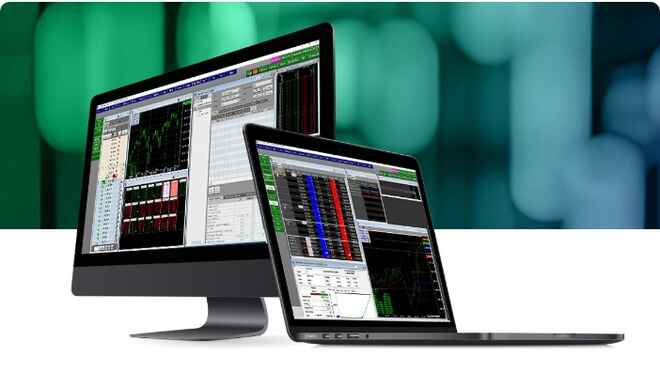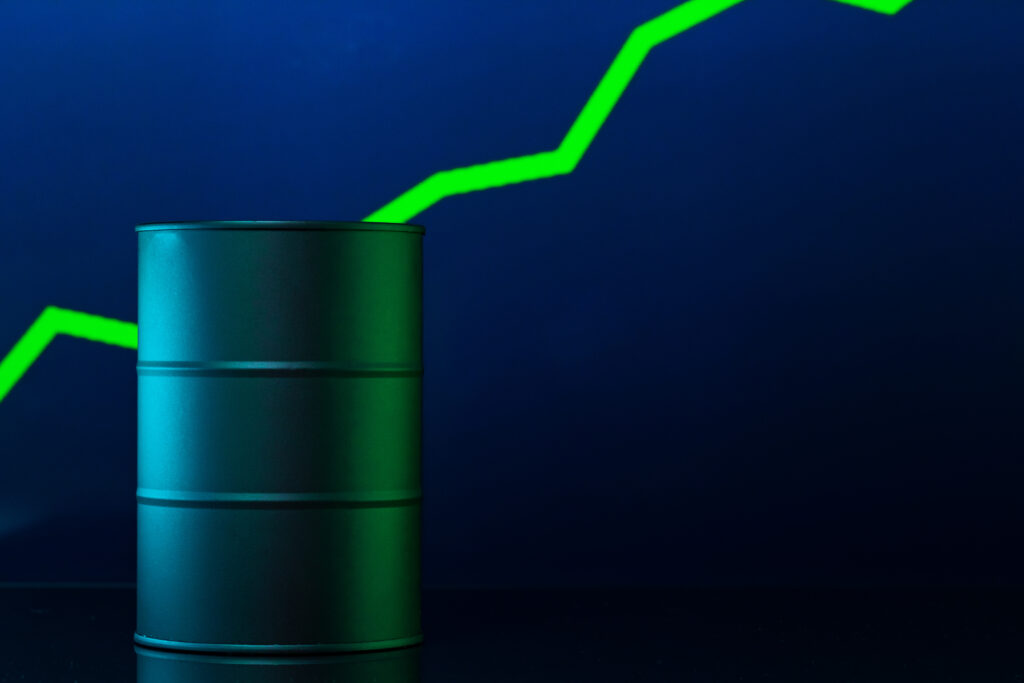Energy markets are dynamic, influenced by global events, technological advances, and shifts in consumer demand. For those new to futures trading, energy commodities like crude oil, natural gas, and even renewable energy sources represent opportunities for diversification and hedging against price volatility. This guide illuminates the path for traders and investors seeking to understand and leverage energy futures in their portfolios.
Why Trade in Energy Futures?
Energy futures trading stands as a strategic tool for both individuals and businesses, offering a way to navigate through the volatility of fuel prices. Far beyond the realm of those directly involved in the energy sector, this approach attracts a wide audience, including portfolio managers seeking risk mitigation strategies. The essence of trading in energy futures lies in its ability to allow speculation on future price movements without the complexities of handling physical commodities, thus offering a seamless and flexible investment pathway.
This trading mechanism is pivotal for businesses that are significantly affected by energy price fluctuations, such as those in manufacturing, agriculture, and transportation. By locking in energy prices today for a future date, these entities can shield themselves from unexpected market swings, aiding in more predictable financial planning and budgeting.
Moreover, the speculative nature of energy futures can lead to potential profits for investors who adeptly forecast future market trends. With various strategies at their disposal, traders can tailor their approach to match their risk tolerance and investment goals, making energy futures a versatile option for achieving financial objectives. Energy futures trading provides a blend of risk management, speculative opportunities, and portfolio diversification, making it a valuable component of a well-rounded investment strategy.
How to Get Started with Energy Futures
Entering the world of energy futures trading is an exciting venture that offers numerous opportunities for investors willing to navigate its complexities. This journey requires an understanding of several key elements that together form the foundation of successful trading in this dynamic market.
Understanding Energy Futures
At the outset, it’s crucial to understand what futures contracts are and how they operate within the energy sector. These contracts are essential tools for managing financial risk, allowing traders to speculate on or hedge against the future price movements of commodities like crude oil, natural gas, or renewable energy sources.
Grasping Contract Mechanics
Building on this foundation, gaining a deeper understanding of the mechanics behind futures contracts is imperative. This includes knowledge of expiration cycles, pricing dynamics, and how external factors such as geopolitical events, supply and demand shifts, and regulatory changes can impact market prices. A thorough grasp of these aspects enables traders to make informed decisions.
Leveraging RJO Futures’ Resources
To support traders in this journey, RJO Futures offers an extensive range of educational resources. The Energy Investor Kit is a standout offering, tailored for those new to the energy market. It breaks down complex trading concepts into digestible insights, covering everything from the basics to advanced strategies for market analysis and risk management. This comprehensive guide is instrumental for anyone aiming to confidently navigate the energy futures market.
Taking Confident Steps Forward
With the right information and tools at your disposal, taking the first steps in the energy futures market becomes a path filled with potential. The transition from a novice to an experienced trader is a process of continuous learning and strategic planning. RJO Futures is committed to providing the necessary resources and support to help traders explore the dynamic world of energy commodities effectively.
Success in energy futures trading is built on a foundation of knowledge, understanding, and strategic application of resources. RJO Futures is dedicated to equipping traders with the insights and tools needed to thrive in this vibrant market. As you embark on this journey, remember that the key to unlocking the potential of energy futures lies in leveraging professional support and continuously expanding your market knowledge.
Navigating Market Analysis in Energy Futures Trading
Understanding market dynamics in energy futures requires a comprehensive approach to analysis, which is broadly categorized into two main types: fundamental and technical. Each plays a critical role in forecasting market trends and informing trading decisions.
- Fundamental Analysis
- Supply and Demand Dynamics: Examines how market supply and demand are influenced by global energy production rates, consumption patterns, and storage levels.
- Geopolitical Events: Considers the impact of political events, policies, and international relations on energy markets, such as changes in oil production quotas by OPEC.
- Regulatory Changes: Analyzes the effects of government policies and regulations on energy commodities, including environmental laws and trade agreements.
- Technical Analysis
- Price Movements: Studies past market prices and trends to predict future price actions.
- Trading Volumes: Looks at trading volumes to gauge market sentiment and potential price movements.
- Chart Patterns and Indicators: Utilizes various technical indicators and chart patterns to identify potential buying or selling opportunities in the market.
Both fundamental and technical analyses are indispensable tools for traders in the energy futures market. Fundamental analysis provides the context and reasons behind market movements, while technical analysis offers insights into how and when those movements might occur. Together, they equip traders with a fuller understanding of market conditions, enabling more informed and strategic trading decisions.
Incorporating both analytical approaches allows traders to navigate the complex and often volatile energy market with greater confidence. By understanding the underlying factors that drive market trends and applying technical analysis to time their trades, investors can enhance their ability to capitalize on market opportunities and mitigate risks.
Risks and Challenges in Energy Futures Trading
Navigating the waters of energy futures trading comes with its set of challenges and risks, understanding and managing which are paramount for every trader, regardless of their experience level. This section dives into the key areas of concern that traders must be aware of to safeguard their investments and strategy effectively.
- Volatility: The energy market is known for its high volatility, driven by factors such as geopolitical tensions, natural disasters, and changes in government policies affecting energy production and distribution. This volatility can lead to significant price swings, impacting the profitability of futures contracts.
- Market Complexity: The energy sector’s complexity, with its myriad of factors influencing supply and demand, requires a deep understanding of the market. Traders need to stay informed about global events, technological advancements in energy production, and shifts in consumer behavior towards renewable energy sources.
- Leverage Risks: Futures trading often involves leverage, allowing traders to control large positions with a relatively small capital investment. While leverage can amplify gains, it also magnifies losses, potentially leading to rapid account depletion if the market moves unfavorably.
- Regulatory and Environmental Considerations: Energy trading is subject to regulatory changes, including environmental regulations that can significantly affect market dynamics. Traders must navigate these legal landscapes, understanding how shifts in policy may impact energy markets and, consequently, futures prices.
Strategies for Mitigating Risks
To navigate these risks, traders can employ several strategies, including diversification, setting stop-loss orders, and continuous market education. Diversification across different commodities can help mitigate the impact of adverse movements in the energy market. Stop-loss orders protect against significant losses by automatically closing out positions at a predetermined price level. Finally, staying abreast of market trends and regulatory changes through continuous education is crucial for making informed trading decisions.
In conclusion, while energy futures trading offers lucrative opportunities, it also presents significant challenges that require careful strategy and risk management. By understanding these risks and employing prudent trading practices, traders can position themselves to take advantage of the opportunities within the energy markets while minimizing potential downsides.
Unlocking Energy Futures Trading Success with RJO Futures
As we wrap up our exploration into the dynamic realm of energy futures trading, it’s evident that RJO Futures plays a pivotal role in equipping traders for success. Our platform, designed for both novices and experienced market participants, is enriched with a suite of tools, in-depth research, and unparalleled support. The Energy Investor Kit, a cornerstone of our educational resources, alongside timely market insights and the expertise of our seasoned brokers, ensures that every trader has the guidance needed to navigate the complexities of the energy futures market with confidence.
The path to proficient trading in energy futures is paved with knowledge, strategy, and the right partnerships. RJO Futures is committed to being that essential partner, providing you with the resources and support to understand market dynamics, apply effective analysis techniques, and leverage professional insights. We invite you to explore our offerings, including the comprehensive Energy Investor Kit, and take the first step towards harnessing the potential of the energy sector. Embrace the journey with RJO Futures and position yourself to thrive in the ever-evolving energy market.



